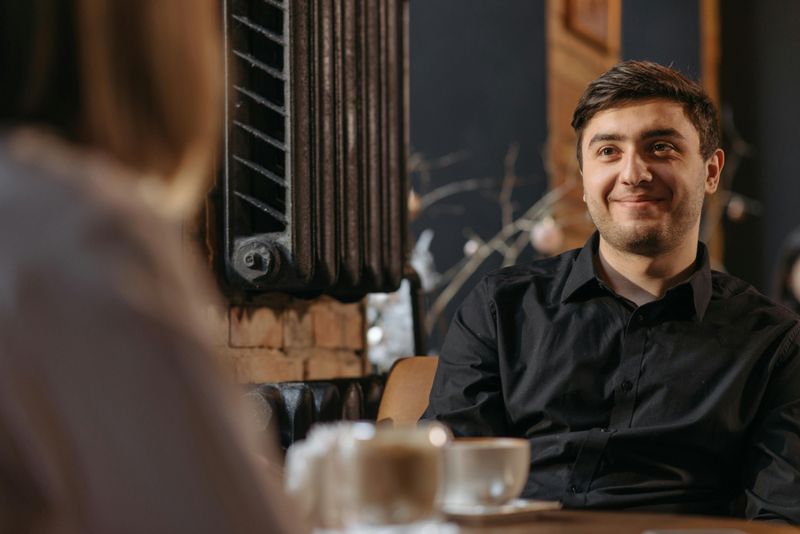Experts Reveal 14 Subtle Signs Someone Secretly Dislikes You

Understanding social cues is vital in navigating relationships. While overt expressions of dislike are easy to spot, subtle signs can be challenging to identify. Detecting these nuances can prevent misunderstandings and help in addressing potential conflicts early on. Sometimes, people may mask their true feelings behind polite behavior, making it crucial to recognize when someone might not be as fond of you as they seem. Whether in personal life or professional settings, these indicators can serve as valuable tools in assessing the dynamics of your interactions. Here are 14 expert-revealed signs that someone might secretly harbor negative feelings towards you.
1. They Give You Short, Closed-Off Answers

When someone consistently responds with short, closed-off answers, it may be an indicator they want to keep interactions minimal. This behavior is not just about being busy; it’s a deliberate choice to avoid deeper engagement. They might use monosyllabic responses or nods, signaling a lack of interest in continuing the dialogue.
While everyone has off days, a persistent pattern of this kind of interaction suggests a desire to avoid connection. This subtle cue can be easily overlooked, especially if the person maintains a polite demeanor otherwise. Recognizing this sign can help in understanding their true feelings towards you.
2. Their Smile Never Reaches Their Eyes

A genuine smile involves more than just the mouth; the eyes play a crucial role. If you notice someone’s smile lacks the warmth that extends to their eyes, it could be a forced expression. This type of smile can often seem mechanical or rehearsed, lacking authenticity. It might be their way of adhering to social norms without genuinely engaging emotionally.
Observing this behavior consistently can offer insights into their true sentiments. Often, such smiles are accompanied by other signs of discomfort, like a tense posture, revealing more about their hidden dislike.
3. They Avoid Eye Contact

Eye contact is a fundamental aspect of communication, reflecting interest and honesty. When someone frequently avoids it, they might be uncomfortable or disinterested. This avoidance is more than mere shyness; it’s a conscious effort to disconnect.
You might notice them looking around the room or at their phone when speaking to you. This behavior can create a sense of unease, as genuine interactions often rely on visual connection. Persistent avoidance of eye contact can indicate a deeper issue at play, suggesting they may not hold you in high regard.
4. Their Body Angles Away From You

Body language speaks volumes, often communicating what words cannot. When someone angles their body away from you during interactions, it’s a subtle sign they’re not comfortable or are uninterested. This non-verbal cue indicates a desire to distance themselves, even if the conversation continues.
You might notice this during meetings or casual gatherings. It’s a subconscious reaction, revealing more than the person might intend. Recognizing this behavior can help in understanding their true feelings, providing a clearer picture of the social dynamics at play.
5. They Rarely Initiate Contact

A lack of initiation in communication can reveal a lot about someone’s interest level. If you find that someone rarely texts first or never invites you out, it might indicate they’re not inclined to foster a closer relationship.
They engage only when necessary, maintaining a distant yet civil interaction. This behavior suggests that they might prefer to keep you at arm’s length. While some people are naturally less communicative, a consistent pattern of avoidance speaks volumes. It’s a sign that they may not value the relationship as much as you do.
6. Their Tone Turns Flat or Icy

The tone of voice is a powerful indicator of underlying emotions. A flat or icy tone, even when the words themselves are polite, can reveal a lack of genuine warmth. This subtle change might occur during conversations, where words seem clipped or delivered with disinterest.
It’s not about what is said, but how it’s said. This behavior can create a cold atmosphere, where interactions feel more like obligations than genuine connections. Recognizing this tonal shift is key to understanding their true feelings, even when verbal communication seems polite.
7. They Use Backhanded Compliments

Backhanded compliments are disguised as praise but often carry a subtle dig. These comments might seem flattering on the surface but are intended to undermine. For example, saying ‘That outfit is brave’ implies more criticism than admiration.
This behavior reflects a deeper, hidden dislike, as it’s a way to express negativity under the guise of politeness. Such remarks can leave you questioning the sincerity of the compliment, revealing the speaker’s true sentiments. Paying attention to these subtle jabs can help you understand their real attitude towards you.
8. They Don’t Celebrate Your Wins

Celebrating others’ successes is a natural part of supportive relationships. When someone consistently downplays or dismisses your achievements, it may indicate hidden resentment or jealousy. Instead of congratulating you, they might change the subject or offer lukewarm acknowledgment. This behavior can be subtle, often masked by polite words lacking enthusiasm.
Such actions reveal more about their feelings than overt expressions of dislike. It’s important to recognize this sign, as genuine friends and colleagues typically share in each other’s joy, highlighting the disparity in their behavior.
9. They Mirror You Poorly — or Not at All

Mirroring is a subconscious way of building rapport in social interactions. When someone mirrors your actions poorly or not at all, it might indicate a lack of interest or connection. Genuine friends often subconsciously imitate each other’s gestures and postures.
A failure to do so can suggest they aren’t invested in the interaction. This behavior creates an awkward dynamic, as mirroring typically fosters empathy and understanding. Observing this lack of synchrony can reveal their true feelings, making it clear that the relationship might not be as amicable as it seems.
10. They Keep Physical Distance

Physical proximity in social settings often signifies comfort and trust. If someone consistently maintains a noticeable distance, it might reveal underlying discomfort with your presence. This behavior includes stepping back when you approach, or choosing to sit far away.
It’s a non-verbal cue that indicates they might not enjoy your company as much as others. Recognizing this pattern can help you understand their true sentiments, as those who value your presence typically prefer closeness. This subtle but telling sign can speak volumes about the nature of your relationship.
11. They Interrupt or Talk Over You

Interruptions during conversations can signify a lack of respect for what you’re saying. When someone frequently talks over you, it suggests they don’t value your input. This behavior is more than just poor etiquette; it’s a revealing sign of disregard.
It creates an unbalanced dynamic where your voice feels secondary. Such interruptions can be subtle, but their cumulative effect signals a deeper issue. Understanding this behavior can provide insight into their true attitude, as those who respect you typically allow space for your thoughts and opinions.
12. They Show Microexpressions of Annoyance

Microexpressions are brief, involuntary facial expressions that reveal true emotions. If someone frequently displays microexpressions of annoyance, such as eye rolls or tight lips, it might indicate hidden dislike. These fleeting gestures can go unnoticed but often betray their true feelings before they can mask them.
Paying attention to these subtle cues can provide a window into their authentic emotions. While they might attempt to maintain a neutral or pleasant demeanor, these microexpressions reveal more than they intend. Observing them helps in understanding the underlying tension in the relationship.
13. They Exclude You Subtly

Exclusion can be subtle yet impactful, indicating someone’s true feelings towards you. If you find yourself consistently left out of plans or conversations, it might be intentional. This behavior often manifests as ‘forgetting’ to invite you or not including you in group discussions.
It creates a sense of isolation and signals that they might not value your presence. Recognizing this subtle exclusion can help in assessing the relationship’s dynamics. Genuine connections typically involve inclusion and effort to engage with everyone, highlighting the disparity when you’re left out.
14. They Drop Politeness When They Think No One’s Watching

When politeness drops in the absence of an audience, it reveals someone’s true character. If you notice someone only remains courteous when others are around, it might indicate they don’t genuinely like you. This behavior can be subtle, such as a change in tone or demeanor when in private.
It suggests that their previous politeness was merely for show, not a reflection of their true feelings. Observing this shift can provide insights into their authentic sentiments, highlighting a discrepancy between their public and private interactions.

Comments
Loading…